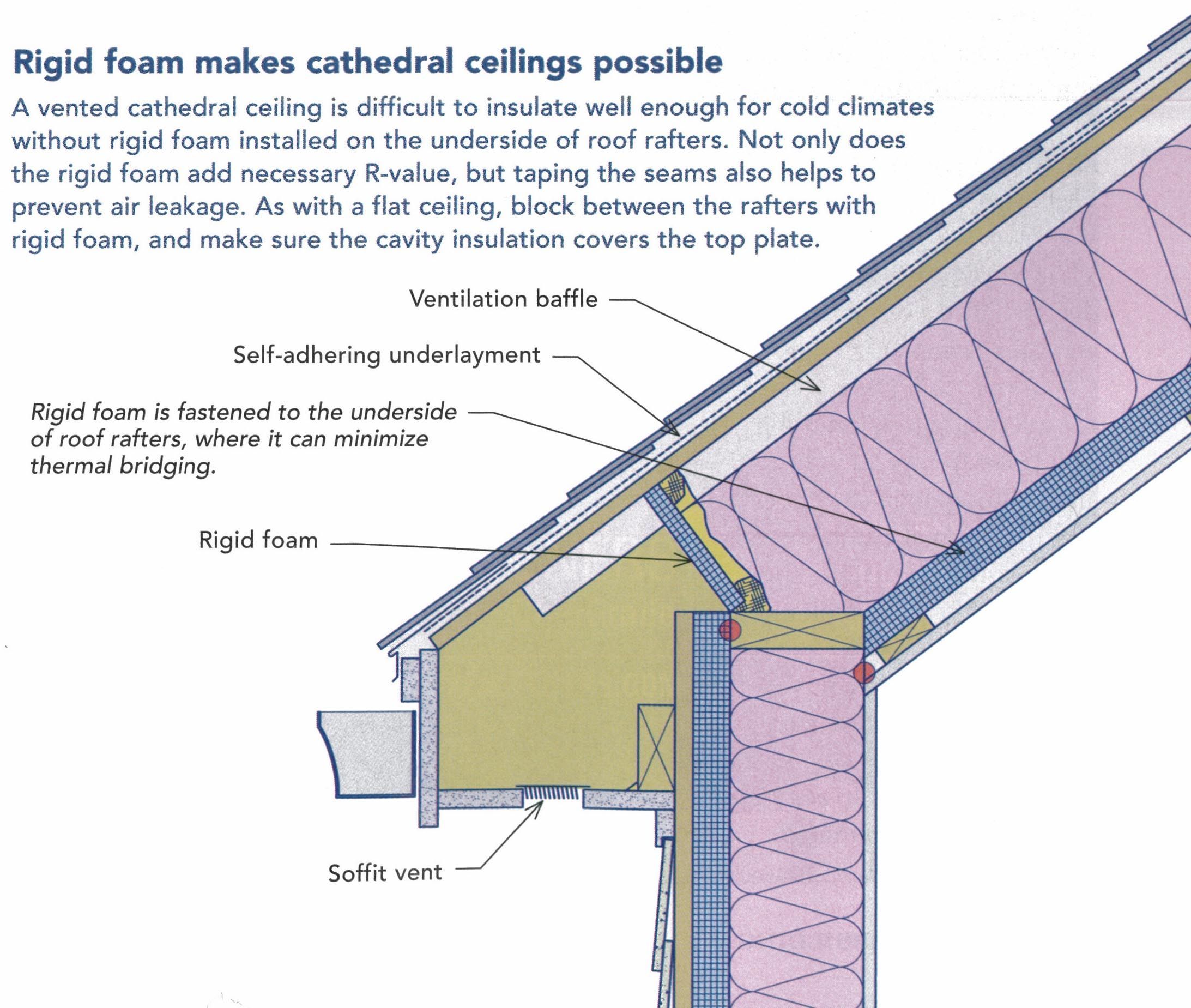Rafter vents ensure the soffit vents are clear and there is a channel for outside air to move into the attic at the soffits and out through the gable or ridge vent.
Install roof rafter insulation.
Make sure it is flush against the wood as even a 1 inch gap can cause a 20 percent heating loss.
This netting serves to hold the blown insulation usually recycled newspaper inside the rafter pockets until such time that ceiling materials can be installed over the insulation.
See a demonstration of how to install owens cor.
You can use rigid foam panels or do as tom silva does with nearly all houses these days.
Consider using high density r 30 batts which are as thick as r 25 batts but fit into 2x10 framing.
Complete coverage of the attic floor along with sealing air leaks will ensure you get the best performance from your insulation.
A vent baffle should be installed between the insulation and the roof decking to maintain the ventilation channel.
Learn how to prep an attic for loosefill and use the dense blow mode to get thermal performance in the eaves.
Don a long sleeved shirt safety glasses gloves and a dust mask to prevent irritating fiberglass from reacting with.
To completely cover your attic floor with insulation out to the eaves you need to install rafter vents also called insulation baffles.
Then feed the rolled insulation under wires and pipe if either is present.
Unroll the material and start on one side of the loft.
Blown cellulose insulation will require the installation of netting over the rafter pockets.
Unwrap a roll of.
Attach baffles to the bottom of the roof sheathing the plywood or solid wood strips onto which roofing material.
The reflective foil installation is the easiest of the processes however the thermal insulation result is the poorest.
How to install rafter insulation 1.
Rolls are usually used for long expanses such as length of floor for entire attic while batts are fit between studs in attic rafters.
Its versatility is the key to its popularity whether being used to achieve.
Place the plastic sheeting on top of the rolled insulation.
Easiest insulation for layperson to install fairly inexpensive r value doesn t fluctuate as with loose fill.
You can also add rigid foam insulation under the rafters which adds r value and eliminates thermal bridging through wood rafters.
If you re considering turning your attic into conditioned storage or living space it s worth changing tactics to insulate between the rafters and wall joists instead of the floor.
An efficient room in a roof in a new build property where over rafter insulation is not desirable.
Staple the foil to the underside of the rafter ensuring as you roll out the material you staple to all the rafters.
R value for fiberglass or wool batts per inch is between r3 and r3 5.




























